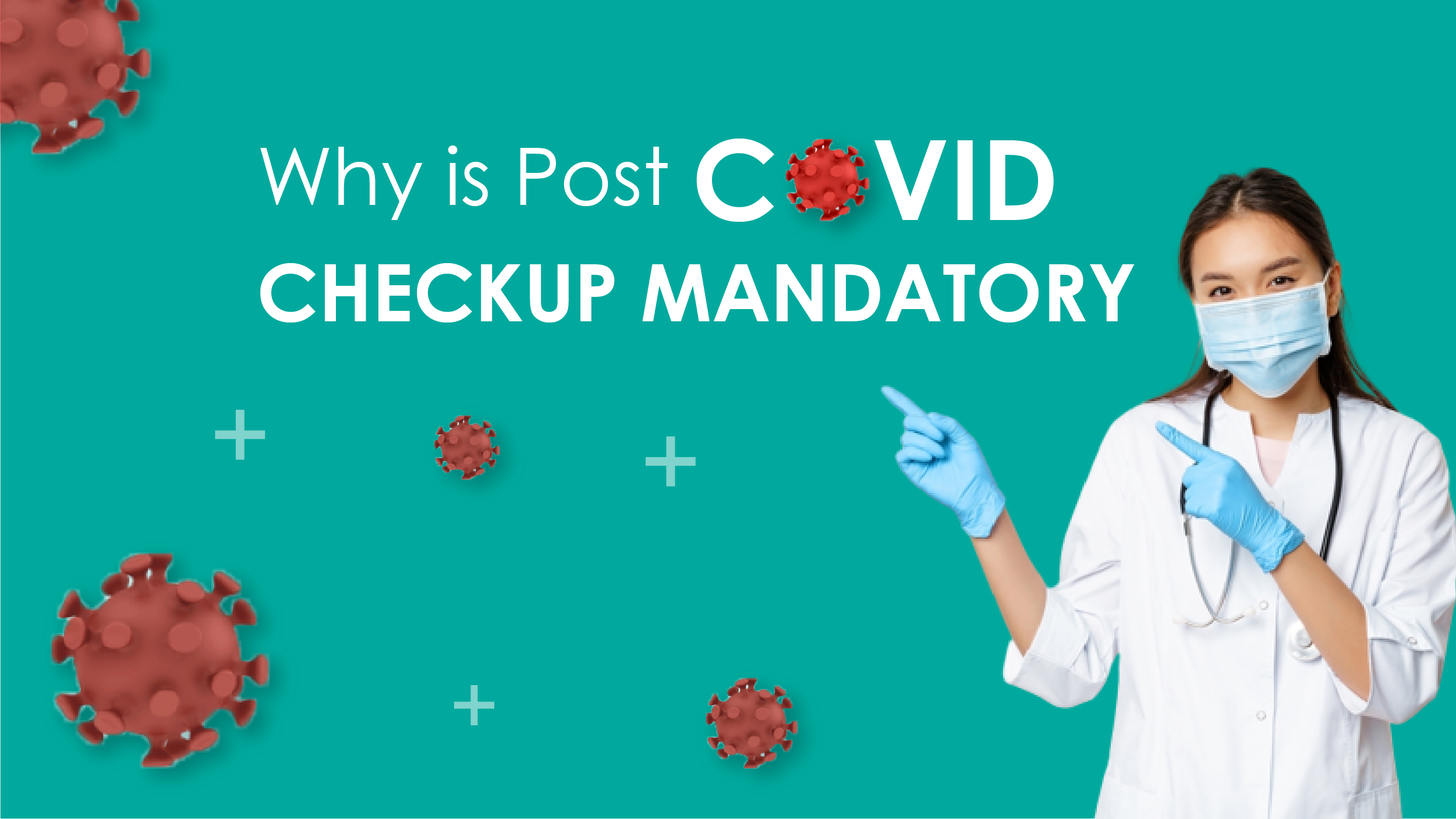As Covid-19 spreads worldwide, positive recovery rates indicate that it shouldn’t be too difficult to combat it. However, post covid checkup is mandatory after the person is tested negative. Despite medication helping covid-19 patients overcome health complications, some of the recovered coronavirus patients have been experiencing complications after their recovery.
Most individuals gain sufficient antibodies after post-covid, which prevents the risk of reinfection. Nevertheless, it is still unclear how long immunity can last. There have also been documented cases of reinfection. Preventive measures can be quite helpful in protecting the immune system of people who are at high risk or who are old. In recent days, doctors are recommending getting a post-covid health checkup just because Covid-19 has certain long-term health effects, which may also be serious. Post-covid infections should therefore not be taken lightly.
Coronaviruses attack your lungs and weaken your immunity, in addition to attacking your immunity. The severity of Covid is aggravated by having an underlying health condition.
Check how your organs are affected by Coronavirus?
Once a person has conquered this deadly disease, keep monitoring his health. Several markers in your blood can give you information about your health. Markers in your blood are different types of cells and relate to one another. Aside from that, there are chemical markers that indicate your health status. Once you’ve recovered from Coronavirus, you can take these marker tests to see how your body and organs, including your heart, have been affected, as well as how your immune system has been affected.
How to check whether your immune system is affected?
Your blood tests can provide you with information about how well you’ve recovered from Covid disease. They can also tell you if it has weakened your immune system or not and how your body is functioning right now. There is a direct link between Covid and heart health. Coronaviruses damage the cardiovascular system’s cellular functions. Because of this, getting a heart health assessment after Covid treatment is crucial.
Post-Covid Tests:
The post covid tests that are to be conducted for the right assessment of your organ health includes:
CBC – Complete blood count, a test that counts the cells that make up your blood: red blood cells, white blood cells, and platelets.
LFT– Liver function test is a type of blood test, also known as a hepatic panel, that provides information about a patient’s liver condition.
LIPID – Common blood test to monitor and screen for your risk of cardiovascular disease.
PT – (PT, CONTROL NPT, RATIO, INR, ISI, PROTHROMBIN INDEX) prothrombin time (PT) test measures how fast clots form in a blood sample.
CPK – Creatine phosphokinase determines the levels of enzymes in the bloodstream.
CRP – C-reactive Protein, it measures the level of c-reactive Protein (CRP) in your blood. CRP is a protein made by your liver.
FIBRINOGEN – fibrinogen activity test, It is also known as a Factor I Activity. Using it, you can determine how much fibrinogen is in your blood.
COVID SPIKE PROTEIN – antibody test for covid-19
D-DIMER – to find out if you have a blood clotting disorder.
LDH – lactate dehydrogenase, otherwise known as lactic acid dehydrogenase, is a molecule that is found in your blood or sometimes other body fluids.
Despite knowing the guidelines for wearing masks and maintaining social distance, some remarks can boost a patient’s immunity and help maintain holistic wellness.
Dr. Remedies Laboratory offers these post-covid tests as part of a package at the best price. For more details, visit Dr. Remedies Labs.
Why Post Covid Health Checkup is Important?
Many individuals gain sufficient antibodies after post-covid, preventing reinfection. There is still no conclusive answer as to how long immunity can last. Several cases of reinfection have been documented as well. In particular, taking preventive measures to protect immunity further can be very helpful for people at high risk or the elderly. It is therefore essential not to take post-covid infection lightly. Even though we know the guidelines suggest wearing masks and keeping social distance, some of the remarks can boost a patient's immunity and help maintain holistic wellness.
Which blood tests should be done post Covid recovery?
To avoid severe health complications later, you should get a few tests and scans after recovering from Covid-19: IgG Antibody Test, Complete Blood Count Test, Neuro-Function Tests, Chest Scan, Cardiac Screenings
What are the symptoms of Covid vaccination?
Fever, headaches, fatigue, and pain at the injection site were the most commonly reported side effects, and most were mild to moderate in severity. The chances of severe side effects are low but can occur, as with single-dose, two-dose, or booster-dose primary shots.
Are stress, anxiety, and depression common post Covid?
The COVID-19 pandemic was a particular and rare situation that affected people physically and psychologically. Stress, anxiety, and depression reactions appear in various physical, psychological, emotional, and behavioral ways for most individuals during the pandemic. Most people have the resources and ability to adapt to this situation.
How can we check our immune system?
Blood tests can be used to determine whether you have typical levels of infection-fighting proteins (immunoglobulins) in your blood and determine how many blood cells and immune cells you have. It is possible to have an immune system defect if the number of certain cells in your blood exceeds the standard range.

